International
‘Progress destroying nature’: Brazil dam fuels fears for river
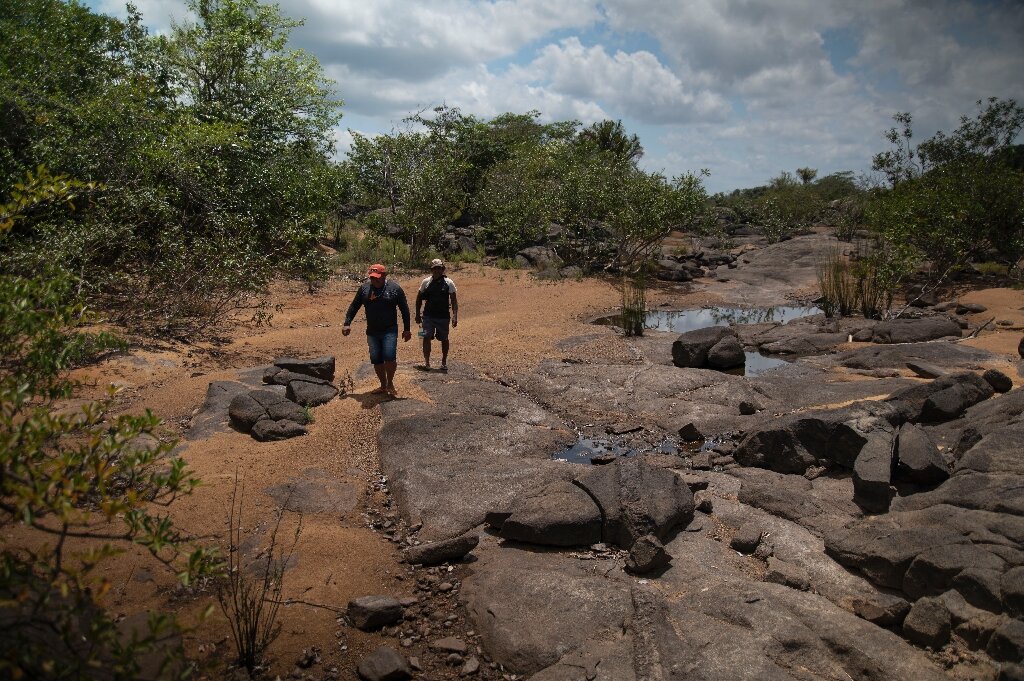
| By AFP | Carlos Fabal with Joshua Howat Berger in Rio de Janeiro |
Holding a dead fish, Junior Pereira looks grimly at a puddle that used to be part of Brazil’s Xingu river, a mighty Amazon tributary that has been desiccated here by the massive Belo Monte hydroelectric dam.
Pereira, a member of the Pupekuri Indigenous group, chokes up talking about the impact of Belo Monte, the world’s fourth-biggest hydroelectric complex, which locals say is killing one of the most biodiverse regions on Earth and forcing them to abandon their way of life.
“Our culture is fishing, it’s the river. We’ve always lived on what the river provides,” says Pereira, 39, who looks like a man trapped between two worlds, wearing a traditional Indigenous necklace and a red baseball cap.
He gazes at the once-flooded landscape, which Belo Monte’s water diversion has made a patchwork of puddles dotted with stranded fish.
“We’ve lost our river,” he says.
“Now we have to buy food in the city.”
‘Like a permanent drought’
Stretching nearly 2,000 kilometers (1,250 miles), the Xingu ebbs and flows with the rainy season, creating vast “igapos,” or flooded forests, that are crucial to huge numbers of species.
They are also crucial to an estimated 25,000 Indigenous people and others who live along the river.
Belo Monte diverts a 100-kilometer stretch of the Xingu’s “Volta Grande,” or Big Bend, in the northern county of Altamira to power a hydroelectric dam with a capacity of 11,233 megawatts — 6.2 percent of the total electricity capacity of Latin America’s biggest economy.
Built for an estimated 40 billion reais ($7.5 billion) and inaugurated in 2016, the dam diverts up to 80 percent of the river’s water, which scientists, environmentalists and residents say is disastrous for this unique ecosystem.
“The dam broke the river’s flood pulse. Upstream, it’s like it’s always flooded. Downstream, it’s like a permanent drought,” says Andre Oliveira Sawakuchi, a geoscientist at the University of Sao Paulo.
That is devastating fish and turtle populations whose feeding and reproduction cycles depend on the igapos, he says.
Sitting by the Xingu’s breathtaking Jericoa waterfalls, which the Juruna people consider sacred, Indigenous leader Giliarde Juruna describes the situation as a clash of worldviews.
“Progress for us is having the forest, the animals, the rivers the way God made them. The progress white people believe in is totally different,” says Juruna, 40.
“They think they’re doing good with this project, but they’re destroying nature and hurting people, including themselves.”
Lula under scrutiny
Proposed in the 1970s, Belo Monte was authorized under ex-president Luiz Inacio Lula da Silva (2003-2010) — who just won a new term in Brazil’s October elections.
As Lula, 77, prepares to take office again on January 1, the project is drawing fresh scrutiny from those hoping the veteran leftist will fulfill his promise to do a better job protecting the Amazon than outgoing President Jair Bolsonaro, who presided over a surge in deforestation.
Touted as a clean-energy source and engine of economic development, Belo Monte has not exactly lived up to expectations.
According to the company that operates it, Norte Energia, the dam’s average output this year has been 4,212 megawatts — less than half its capacity.
A recent study meanwhile found its operations tripled the region’s greenhouse gas emissions — mainly methane released by decomposing forest that was killed by the flooding of the dam reservoir.
A new plan
In 2015, researchers from the Socio-Environmental Institute (ISA) conservation group teamed up with the Juruna to document the devastation.
They have devised a new, less-disruptive way for Belo Monte to manage water, the “Piracema” plan — named for the period when fish swim upriver to spawn.
Researchers say the plan is a relatively small tweak to the dam’s current water usage, adapting it to the natural flood cycles.
Brazil’s environmental regulator is due to rule soon whether to order Norte Energia to adopt it.
The company declined to comment on the proposal, saying in a statement to AFP that it instead “recognizes the plan established in the plant’s environmental licensing.”
The decision is vital, says biologist Camila Ribas of the federal government’s National Institute for Amazon Research.
“When you completely alter the flood cycle, forests die,” she says.
“These are incredibly intricate, interlinked systems. If Belo Monte and other hydroelectric projects disrupt them too much, it could spell the end of the Amazon.”
International
Tehran airports resume operations as Iran lifts airspace closure

Iran announced on Thursday the full reopening of its airspace, including over the capital Tehran, after it was closed on June 13 — the first day of the war with Israel.
According to the official IRNA news agency, international airports in Tehran (Mehrabad and Imam Khomeini), as well as airports in the north, east, west, and south of the country, have resumed operations and are ready to handle flights.
Iran had completely shut down its airspace on June 13 following Israel’s unprecedented airstrikes. On June 25, one day after a ceasefire was declared, flight operations had resumed gradually, though only in the eastern regions.
On June 28, Iran further expanded the reopening of its airspace to include foreign airlines flying over its territory.
As of Thursday, only the airports in Isfahan (central Iran) and Tabriz (northwest) remain closed, as both cities were repeatedly targeted in Israeli airstrikes and their infrastructure is still under repair, IRNA said.
International
Man attacks passengers with axe on german ICE Train

A man attacked several passengers with an axe aboard an ICE train in the southern German state of Bavaria on Thursday.
According to police, four people sustained minor injuries during the incident, and the suspect was taken into custodyshortly afterward.
The attack occurred shortly before 2:00 p.m. (local time) on ICE train number 91, which was traveling from Hamburg-Altona to Vienna, Austria, according to German newspaper Bild.
Authorities have not yet released further details regarding the motive or the identity of the attacker.
International
Trump to decide soon on deportation exemptions for construction and farm workers

U.S. President Donald Trump stated on Tuesday in Florida that he will make a decision in the coming weeks regarding exemptions from deportations for workers in the construction and agriculture sectors.
Trump made these remarks to the media during a visit to the new migrant detention center, ‘Alligator Alcatraz,’ located in the middle of a wetland in Florida, the White House reported.
ICE (Immigration and Customs Enforcement) raids have targeted many of these workers, sparking fear among them and threatening to slow down two sectors that are vital to the U.S. economy.
In construction, 25.7% of workers are immigrants, and 14.1% of the total workforce nationwide is undocumented, according to the American Immigration Council.
In agriculture, the percentage of undocumented employees rises to 42%, according to data from the Department of Agriculture cited by the New York Times.
-

 Central America2 days ago
Central America2 days agoPanama’s President Mulino: “We are regaining international trust” to exit tax haven lists
-
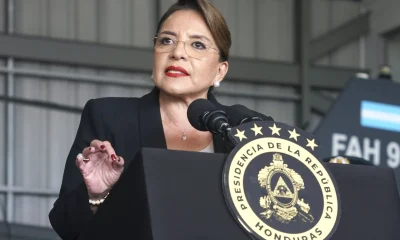
 Central America5 days ago
Central America5 days agoCastro to address FfD4 in Spain as Global Financial Reform takes center stage
-

 International5 days ago
International5 days agoTikTok sale advances as Trump reveals deal is in place
-
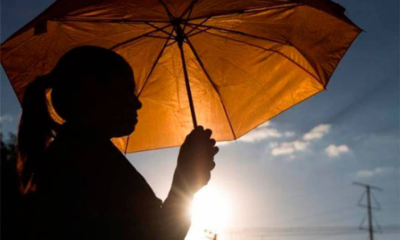
 International3 days ago
International3 days agoSpain hits record 46°C in June amid scorching heatwave
-
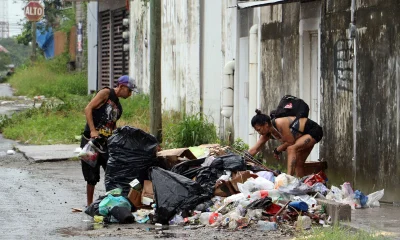
 International3 days ago
International3 days ago7 in 10 mexicans born poor stay poor, new report finds
-

 International3 days ago
International3 days agoTrump administration sues Los Angeles over sanctuary city policies
-

 International3 days ago
International3 days agoEcuador’s former VP Jorge Glas sentenced to 13 more years for corruption
-

 International2 days ago
International2 days agoThe White House insists that the United States remains in contact with Iran
-

 International2 days ago
International2 days agoTrump to decide soon on deportation exemptions for construction and farm workers
-

 International2 days ago
International2 days agoThe US climate agency will lose access to key data for hurricane forecasting in July
-

 International2 days ago
International2 days agoThe Argentine justice declares Milei’s measure that limited the right to strike unconstitutional
-

 International2 days ago
International2 days agoIDB plans $11 billion in sustainable financing to support countries facing currency risks
-

 International2 days ago
International2 days agoTrump sues Los Angeles for immigrant “sarture city” policies
-

 International2 days ago
International2 days agoMaduro’s government appeals to Vatican for help rescuing migrant children
-

 International2 days ago
International2 days agoTrump will receive Netanyahu at the White House next week
-

 International2 days ago
International2 days agoFormer Correísta vice president Jorge Glas, sentenced to 13 years in prison for embezzlement in Ecuador
-

 International2 days ago
International2 days agoFormer argentine president seeks brazilian leader’s visit amid house arrest
-
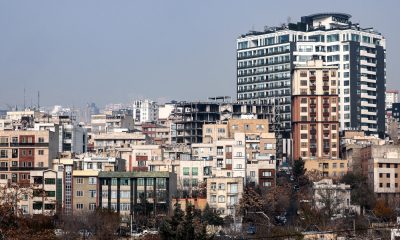
 International6 hours ago
International6 hours agoTehran airports resume operations as Iran lifts airspace closure
-

 International2 days ago
International2 days agoThe US Supreme Court will address the reduction of spending limits of parties in campaigns
-

 International2 days ago
International2 days agoAn investigation by the Trump Administration concludes that Harvard violated the rights of Jewish students
-

 International6 hours ago
International6 hours agoMan attacks passengers with axe on german ICE Train












































































